[et_pb_section bb_built=”1″][et_pb_row][et_pb_column type=”4_4″][et_pb_text _builder_version=”3.0.86″ background_layout=”light” text_line_height=”1.4em”]
During this time of Thanksgiving, we are also recognizing the Native American Heritage of the United States. Friday, November 24, 2017 is Native American Heritage Day, the culmination of the yearly month of commemoration.
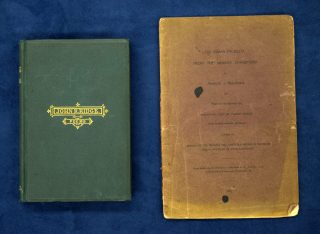
As part of its continuing efforts to support faculty and student research on campus, the University of Arkansas Libraries has recently added rare books in support of the Indigenous Studies Program. In collaboration with faculty in the program, Special Collections is bringing in resources that document the voices of Native American authors. Two recent acquisitions show the creative and analytical contributions of 19th century Native American thinkers, one from an author closely connected to Fayetteville and another from a college-educated leader of the Ottawa in Michigan.
Special Collections now has a first edition of Poems, a beautiful, near pristine copy of the posthumously published collection of poetry by John Rollin Ridge. He was the son of one of the leaders of Cherokee “Treaty Party” (who were pro-assimilation), John Ridge, and the nephew of another member of the Party, the renowned translator and publisher, Elias Boudinot. The younger Ridge witnessed the assassination of his father at the hands of the rival John Ross faction after their family had emigrated from Georgia to the Indian Territory. Ridge then he moved with his widowed mother to Fayetteville where he studied law and married, before he fled to California following a violent confrontation with a member of the Ross faction in 1849. The Ridge House where John Rollin lived with his mother and siblings still stands in downtown Fayetteville and is on the National Register of Historic Places.
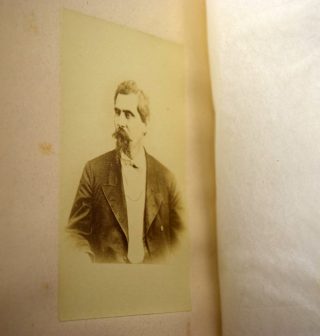
John Rollin Ridge holds a unique place in literary history as the first Native American novelist and the creator of the “Zorro” mythology through his novel The Life and Adventures of Joaquin Murieta (1854). He worked as a journalist and editor for the San Francisco Bee and San Francisco Herald newspapers until his death October 5, 1867.
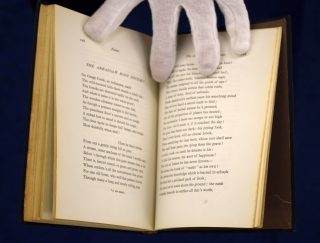
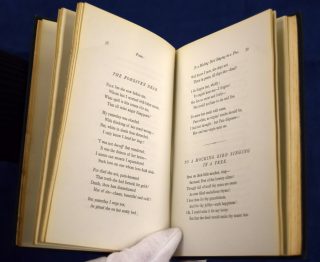
As the work of a Cherokee and Arkansan, the book–in the original dark green publisher’s cloth with bright gilded titling and providing a portrait of the author–greatly adds to the Libraries’ Arkansas Collection. The volume includes some notable and moving poems describing the 19th century American West, as well as his roots nearer Fayetteville, such as in “Arkansas Root Doctor.” The poem above, “Forgiven Dead,” has enduring resonance, knowing the tragedy Ridge, his family, and their Nation experienced.
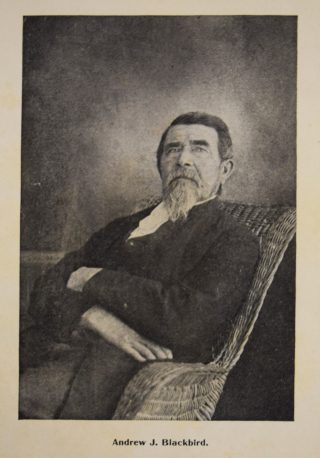
In The Indian Problem, from the Indian’s Standpoint (1900), Andrew Jackson Blackbird continued the investigation of the cultural barriers of assimilation and Ottawa history and language he began in significant works published in the 1880s.
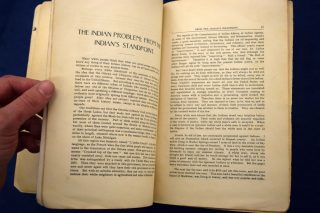
Blackbird (or Mac-ke-te-pe-nas-sy) served as negotiator and translator for the Ottawa (or Odawa) and Chippewa during the signing of the Treaty of 1855. (Please see this article from the Michigan State University Libraries for more information.) He was a longtime and prominent resident of Harbor Springs, Michigan, where he bought property in 1858 and served for a time as Post Master. He also worked to secure pensions for Ottawa veterans and served as a witness for Native Americans in other legal disputes.
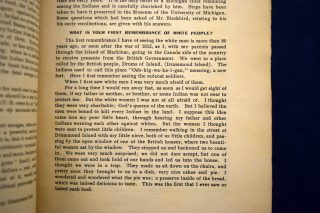
The book in Special Collections is a short volume in the original paper covers, published in Ypsilanti, Michigan, that includes a portrait of the author along with helpful indexes such as the names of the chiefs of the Ottawa Indians. The title page indicates that Blackbird was the hereditary chief of L’Abre Croche, the area of Michigan where he made his home.
For more information for the other rare and unique resources available in the Libraries’ Special Collections, contact the department at specoll@uark.edu or visit us in room 130 of Mullins Library.
[/et_pb_text][/et_pb_column][/et_pb_row][/et_pb_section]

This is a very nice essay, and beautifully presented. I think it is important, wherever possible, to connect “Rare Books” to the mission of the department to support Arkansas studies. Fayettvillians especially will like knowing about the Ridge connection.
I have a question about the spelling of Zorro. I could not find a reference to the name spelled with only one “r”; the Spanish word for “fox,” the English version of his name, has two. How is it spelled in your sources?
You are quite right about Zorro. Thanks for bringing our attention to it!